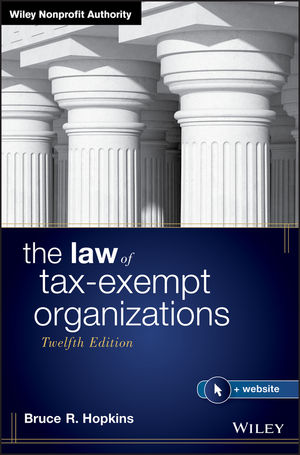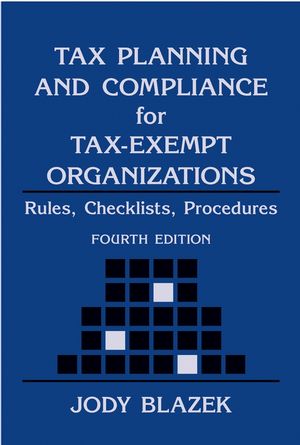Non-Profit Attorney

Graphic by Alondra Pulido
Attorneys for non-profit organizations often serve as general counsel and face a variety of issues unique to tax-exempt organizations. Because of the sheer number of issue-specific non-profit organizations in the United States, attorneys for these organizations may work on anything from litigation to advocacy and from lobbying to international public interest. In their day-to-day operations, non-profit attorneys may work on administrative, contract, employment, or tax law. Expertise in tax law is especially important to the work of a non-profit attorney, particularly in the formation stage of a non-profit, when they must obtain a determination from the IRS as a tax-exempt organization. It is also important for non-profit attorneys to familiarize themselves with state regulations of charitable solicitations, especially as they pertain to fundraisers.
Law students interested in pursuing a career as a non-profit attorney should demonstrate client-based and litigation skills as well as a commitment to public interest work and in particular, a commitment to the group of people that the organization serves. Prospective non-profit attorneys should also be aware of what type of legal work they prefer to practice since non-profit organizations focus on different services and their attorneys work on different matters. For example, a non-profit attorney may focus more on civil legal services, while another focuses on public defense, and another may focus primarily on transactional or administrative work for the organization.
Attorneys can work for non-profits like the Southern Poverty Law Center (SPLC). Through litigation, education, and advocacy, the SPLC seeks to protect the most vulnerable members of American society. General counsel for the SPLC may advocate for children’s rights, immigrant justice, LGBTQ rights, voting rights, economic justice, and criminal justice reform. General counsel for the SPLC also assists with the organization’s Intelligence Report publication, which is a biannual magazine that provides updates on hate and extremist groups to law enforcement, the media, and the general public.

Non-Profit Law Resources
-
LAW E 514 The Law Of Nonprofit Organizations [University of Washington School of Law]
-
Sub-Concentration in Nonprofits & Social Entrepreneurship
-
Nonprofit Organizations Committee [ABA]
-
Washington Nonprofit Corporation Act [RCW]
-
University of Washington School of Law Faculty - Non-Profits & Activist Groups:
-
Kimberly Ambrose - UW Law Associate Teaching Professor
-
Former consultant for the Asia Foundation, E2J project (non-profit, international development organization)
-
-
Elizabeth Baldwin - UW Law Assistant Teaching Professor
-
Currently working with Kids in Need of Defense (KIND) as an interim staff attorney, previously worked here as an immigrant child legal rights coordinator
-
Former legal advocate for the Northwest Immigrant Rights Project
-
-
Angélica Cházaro - UW Assistant Professor of Law
-
Worked with the Northwest Immigrant Rights Project (NWIRP) in Seattle for 7 years
-
-
Christine N. Cimini - UW Law Associate Dean for Experiential Education, Professor of Law
-
Previously worked with the American Civil Liberties Union (ACLU) of Colorado
-
Former staff attorney for the Legal Aid Services of Oregon, a statewide non-profit organization striving to “achieve justice for low-income communities”
-
-
Jennifer S. Fan - UW Assistant Professor of Law
-
Former Vice President and Director of Legal Affairs for the Asian Pacific Fund, a non-profit foundation dedicated to serving the Asian American community in the Bay Area
-
-
Mary D. Fan - UW Professor of Law
-
Currently serves on the Board of Directors of the American Civil Liberties Union (ACLU) of Washington
-
-
Robert Gomulkiewicz - UW Charles I. Stone Professor of Law
-
Worked as a volunteer lawyer for the Northwest Immigrant Rights Project (1987-1995)
-
-
Gregory A. Hicks - UW Professor of Law
-
Served on the board of The Nature Conservancy, Washington Chapter (2000-2007)
-
Served on the board of the Pacific Forest Trust (2001-2004)
-
-
Lisa Kelly - UW Bobbe & Jonathan Bridge Professor of Children and Family Advocacy
-
Former local counsel for the NAACP Legal Defense and Education Fund
-
-
Patricia Kuszler - UW Charles I. Stone Professor of Law
-
Served on the Board of Directors for the American Civil Liberties Union (ACLU) of Washington (1997-2000)
-
-
Clark Lombardi - UW Professor of Law
-
Former analyst for Human Rights Watch (1993)
-
-
Terry Price - Affiliate Instructor/Executive Director of Graduate Education
-
Former the President of the QLaw Foundation of Washington (2017-2018)
-
-
Eric Schnapper - UW Professor of Law
-
Worked at the NAACP Legal Defense and Education Fund for 25 years as assistant counsel
-
-
Todd Wildermuth - Assistant Teaching Professor
-
Previously worked for Friends of the Chicago River, a non-profit organization dedicated to improving the health of the Chicago River system (2000-2004)
-
-
Books
-
 Bruce R. Hopkins' Nonprofit Law Dictionary
by
Publication Date: 2015Available online from ProQuest Ebook Central
Bruce R. Hopkins' Nonprofit Law Dictionary
by
Publication Date: 2015Available online from ProQuest Ebook Central -
-
 Good Counsel Meeting the Legal Needs of Nonprofits
by
Publication Date: 2012Available online from ProQuest Ebook Central
Good Counsel Meeting the Legal Needs of Nonprofits
by
Publication Date: 2012Available online from ProQuest Ebook Central -
 The Law of Tax-Exempt Organizations
by
Publication Date: 2019Available online from O'Reilly Academic
The Law of Tax-Exempt Organizations
by
Publication Date: 2019Available online from O'Reilly Academic -
 Starting and Managing a Nonprofit Organization: A Legal Guide
by
Publication Date: 2013Available online from ProQuest Ebook Central
Starting and Managing a Nonprofit Organization: A Legal Guide
by
Publication Date: 2013Available online from ProQuest Ebook Central -
 Tax-Exempt Organizations and Constitutional Law: Nonprofit Law as Shaped by the U.S. Supreme Court
by
A comprehensive guide to understanding the theory and implications of constitutional law as it relates to tax-exempt organizations. Although the U.S. Constitution does not make any reference to nonprofit organizations--not surprising, since the Constitution is not a framework for the structure of the entirety of U.S. society--the Supreme Court has effusively shaped nonprofit law. Now, leading nonprofit law expert Bruce R. Hopkins discusses how tax-exempt organizations, including educational, religious, and healthcare institutions, are directly affected by constitutional law decisions and other pronouncements from the U.S. Supreme Court.
Publication Date: 2012
Tax-Exempt Organizations and Constitutional Law: Nonprofit Law as Shaped by the U.S. Supreme Court
by
A comprehensive guide to understanding the theory and implications of constitutional law as it relates to tax-exempt organizations. Although the U.S. Constitution does not make any reference to nonprofit organizations--not surprising, since the Constitution is not a framework for the structure of the entirety of U.S. society--the Supreme Court has effusively shaped nonprofit law. Now, leading nonprofit law expert Bruce R. Hopkins discusses how tax-exempt organizations, including educational, religious, and healthcare institutions, are directly affected by constitutional law decisions and other pronouncements from the U.S. Supreme Court.
Publication Date: 2012 -
 Tax Planning and Compliance for Tax-Exempt Organizations Rules, Checklists, Procedures
by
Publication Date: 2004Available online from HeinOnline
Tax Planning and Compliance for Tax-Exempt Organizations Rules, Checklists, Procedures
by
Publication Date: 2004Available online from HeinOnline
